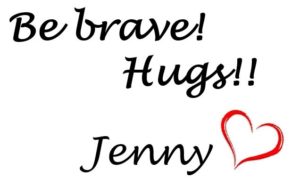Gossip – a way to connect?

Does your family engage in gossip? What is gossip and what purpose does it serve?
Has someone ever, with a hushed voice, told you “You know what I just found out?!” followed by a description of a situation where someone you know has been through something embarrassing or terrible? What feelings were you left with? Did you feel happy you got in on a secret and like you were part of a selected few?
Maybe you were left with an uneasy feeling. A tough decision of how to act toward that person now that you knew something about them that they hadn’t told you themselves? If you think back to it, how did you feel about the person telling you the gossip?
Gossip – when it’s bad
What is gossip? I’m talking about the definition where person A is talking about person C with person B without person C knowing about it. The talk is usually about something that person C wouldn’t appreciate people talking about. Gossiping can be a form of bullying and adults do it as well as children. There’s a scale from a more wide spread culturally approved level where you talk about celebrities or other public figures to intentionally spreading evil rumors with the intention to hurt people.
Using gossip as a way to test our values and beliefs
Is talking about other people, without them knowing, always bad?
I’ve spent my fair share of hours, growing up, talking to my friends and family about other people. I think it’s been a way to find myself and who I am in relations to other people.
A way to explore the beliefs of the person I’m talking to; What are your values, what do you think is appropriate and what behavior can’t you stand? If I told you a story about what someone else had done what would your reaction be? Would you show dislike or repulsion? Would you be tolerant and try to look at the situation from a more forgiving or positive angle?
If I told you about something possibly bad someone did would you display compassion or contempt? Your reaction would tell me your values and how to act and not act in relation to you. It’d teach me what behaviors you would accept and what, if anything, could make you reject me. If I respected your opinion I might have taken your reaction to heart and even adopt the same value system.
Is describing a situation you were part of gossip?
Sometimes things happen, where you were involved, and later on you want to talk to someone about it. You might turn to a trusted friend or family member to get their opinion on who was right or wrong or how you should manage the situation going forward. Is that gossiping?
I’d argue that it depends on how you describe the situation and what your focus is. When the person, who was part of the situation, isn’t there to tell her/his side of the story you can only be sure of one thing – you don’t have all the facts. The story you tell is your story about what has happened.
I grew up in a family that seldom let me get away with blaming other people for my problems. If I was somehow involved in a situation the focus was usually shifted to my actions and my decisions and on what I wanted to do next.
I’d come home and describe how a teacher did this or that terrible thing and my mom or dad would listen and then invariably ask me about my part of the story.
The question is why you tell the story in the first place. Are you in need of reassurance? That the teacher was an ass and you were entitled to be angry or feeling like you’d been victimized or to retaliate the way you did? Are you looking for your parents’ reactions to the teacher and/or you – trying to learn what is okay and not in this world? Or are you trying to get help with managing a situation that has gotten out of hand?
How you talk about others is how you’ll talk about me
Think back to a situation when someone told you something you knew they weren’t supposed to tell you. How do you feel towards that person? Would you trust that person with your secrets? We often don’t realize that how we communicate about others is how people will learn to expect us to communicate about them. If we talk badly about someone the people that we’re talking to will subconsciously expect us to talk about them in the same manner when they’re not around.
When we talk about someone else in a demeaning or frustrating manner we teach the people listening that they could also be the source of our contempt or anger. Our children listen to what we say and they don’t separate themselves from other people.
When kids gossip you get an opportunity to prove your love and connection
Imagine when your child brings home gossip or tell you a story of how they’ve been victimized. Now you’ve an important opportunity to prove you values and your connection to that child. Your reaction to “that other person” will tell your child how you would react to HER/HIM and also how you would talk about her/his mistake to others.
My daughters are old enough to understand some aspects of world politics. When Mr. Trump was elected president many people around us, myself included, was bewildered and somewhat chocked. The rhetoric was filled with animosity and ill will in a way that made it hard to resist talking badly about him. Yet however crazy we think that man is acting we need to talk about him in a respectful manner. Not for his sake, for our own.
When I participate in gossip about how stupid, evil or clumsy someone is I’m teaching my children that I believe that people can BE that way. I enforce the fear in my kids that they could actually do something to risk become the target for my disdain.
Put your story through a simple test
What are your current values regarding gossip and talking about other people? Could your family use an even deeper connection and trust with each other? What would happen if you agreed on the following value?
“Only say things about someone that you would say if that person was present in the room.”
This simple test will make you tell your stories in a respectful manner, it will make you consider what words you choose and force you to look at a situation from both sides right from the start.
When your children starts to tell you a story about someone who isn’t in the room ask that they take a moment and think the situation through. Then ask them to tell you about the situation as if that person was there listening. Afterwards ask if the child thinks that that other person would agree on the version that was given.
This might help you figure out why your child is telling you the story in the first place and how you best can support her and demonstrate your love and trust.
And hey.. while you’re at it. Put your own stories, about things that have happened, through the same test; would you describe the situation in the same manner if you were describing it to the one it involves?
